Category: Tips and Tricks
Articles about tips and tricks for caregivers and nurses caring for the terminally ill.
Articles about tips and tricks for caregivers and nurses caring for the terminally ill.

When a loved one is facing a serious illness, it can feel like standing at a crossroads. Each path represents a different way to care for them in their time of need. It’s a moment filled with tough choices and deep emotions. This article thoroughly explains hospice care, its philosophy, and the benefits it provides to patients and families facing terminal illness. Learn about the decision-making process, the hospice experience, and how to navigate this difficult choice with dignity and love.
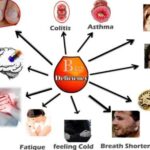
Vitamin B deficiencies can lead to severe health issues mimicking terminal diseases like nerve damage, anemia, and increased cancer risk. This comprehensive guide explores the symptoms, causes, diagnosis, and treatment options for vitamin deficiencies B1, B2, B3, B5, B6, B7, B9, and B12. Understand the importance of adequate vitamin B intake for energy production, metabolism, cell growth, and overall well-being.

Hospice care focuses on comfort rather than curative treatments. In emergencies, calling 911 can lead to invasive procedures and disrupt hospice care. This article explores why contacting your hospice provider first is crucial and offers guidance on alternatives to calling 911.

Caring for a loved one with dementia in rural areas can be challenging when local care facility options are limited. This guide explores alternatives, such as contacting organizations like the Alzheimer's Association, considering different facility types (adult day care, long-term care, respite care, memory care), seeking financial assistance, evaluating hospice eligibility, and assessing life plan/continuing care communities. It also addresses the legal and ethical implications of using hospitals as a last resort.

Explore the complex world of dementia-related aggression and learn how to identify its underlying causes. This comprehensive guide offers insights into medication-related issues, pain management, and non-pharmacological interventions. Discover compassionate care strategies to support patients and caregivers on this challenging journey.
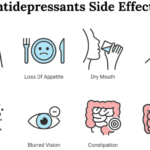
Dive into the world of Selective Serotonin Reuptake Inhibitors (SSRIs) and their role in treating depression. Discover the importance of medication half-life, the risks of serotonin syndrome, and why the chemical imbalance theory of depression is being challenged. Learn about the concerns of overprescription in older adults.
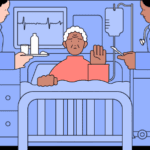
Hospice care focuses on comfort, not curing illness. But what if an emergency arises? This guide explains when hospice covers emergency care, how to proceed, and how hospice services continue during/after hospitalization - ensuring you make informed decisions without losing benefits.

This article provides a compassionate guide for families and caregivers of individuals with dementia. It aims to offer insight into the progression of dementia and how to recognize when it may be time to consider hospice care. This article seeks to empower you with knowledge and understanding so you can make informed decisions that honor the dignity and comfort of your loved one.
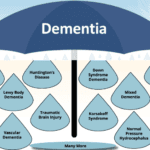
This article is like a flashlight in the dark. It’s here to shine a light on the path ahead, even when we don’t have all the answers. We’ll talk about how dementia can affect people differently and share some common signs that can help you guess what stage your loved one might be in.
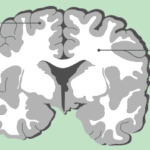
Discover the essentials of white matter disease, its impact on brain health, and how to support affected loved ones. This comprehensive guide offers insights into symptoms, diagnosis, treatment options, and practical tips for caregivers, empowering families to navigate this challenging condition with knowledge and compassion.

Dementia is a complex and challenging condition that affects millions of individuals, often requiring specialized care. When it comes to supporting a loved one with dementia, understanding the types of healthcare providers available is essential. Each specialist brings a unique set of skills and expertise to the table. In this article, we will delve into the various types of healthcare providers for dementia and help you understand when to consider one specialist over another.

Discover the truth behind the myth that medications can keep terminally ill patients alive indefinitely. This article explores the psychological factors behind this belief and its consequences while providing compassionate strategies to cope with the reality of losing a loved one while ensuring quality end-of-life care.

Medications like anticoagulants, antidepressants, and NSAIDs can cause harm to hospice patients. Learn how to balance comfort and safety with individualized care.

Anticoagulants can prevent blood clots but also cause bleeding risks for terminally ill patients. This article explains why these medications should be regularly reviewed for deprescribing, outlining factors like prognosis, preferences, and palliative care options to consider when making informed, compassionate choices aligned with the patient's goals.

This article discusses the importance of quarterly medication reconciliation for terminal patients and their families. It explains the benefits, such as improving patient safety, quality of life, symptom management, and the challenges and solutions. It also addresses the need to re-evaluate certain medications, like donepezil and memantine, for patients with dementia as their disease progresses.

This guide provides practical strategies for preventing and managing pressure injuries in terminally ill patients. Learn how to assess risk, optimize nutrition, reposition properly, choose support surfaces, and care for the skin. Get recommendations for home, hospice, and hospital settings, as well as pain management and infection control. Empower yourself with evidence-based tips to improve your loved one's comfort and quality of life.
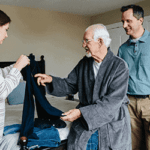
Explore practical solutions for managing disappearing clothing in dementia care. Learn about iron-on name labels, simplified clothing choices, and the importance of family-facility collaboration. This guide offers practical tips to ensure your loved one with dementia always has the right clothes, reducing stress for patients and caregivers.

Lymphedema is a chronic condition that affects millions of people worldwide, especially those who have undergone cancer treatment or have other lymphatic disorders. It occurs when the lymphatic system, which drains excess fluid and waste from the tissues, is damaged or blocked. The most common symptom of lymphedema is swelling of the affected limb, which can range from mild to severe. Lymphedema can have a significant impact on the quality of life of patients with serious illnesses, such as cancer, heart failure, or chronic kidney disease. In this article, we will discuss hospice best practices for the management of lymphedema, with a focus on the needs and preferences of terminally ill patients, family members, and caregivers.
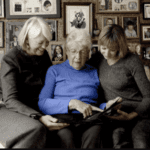
Dementia affects memory, thinking, and behavior, presenting challenges for patients and caregivers. This article discusses the best products for managing these challenges, enhancing quality of life for those with dementia.

Explore the Dementia Care Essentials book series, a comprehensive collection of nine guides addressing vital aspects of dementia care. From managing hallucinations to optimizing nutrition, these books provide invaluable insights for caregivers, healthcare professionals, and families navigating the challenges of dementia

Discover essential strategies for managing adrenal insufficiency crises in terminally ill patients. Learn about symptoms, risk factors, and crucial interventions to ensure patient comfort and safety. This guide provides valuable insights for hospice nurses and caregivers in this critical condition.

This article aims to overview Pennsylvania medication technicians' training and certification process and discuss specific skills and knowledge needed to perform their duties effectively and safely.
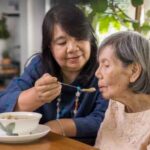
Discover how the GUIDE model can be applied in hospice and palliative care, offering improved support for dementia patients and their caregivers. Learn best practices and implementation strategies.

Discover the commonalities between dementia and autism spectrum disorders (ASD), crucial for caregivers navigating symptoms. Access support resources for comprehensive care.